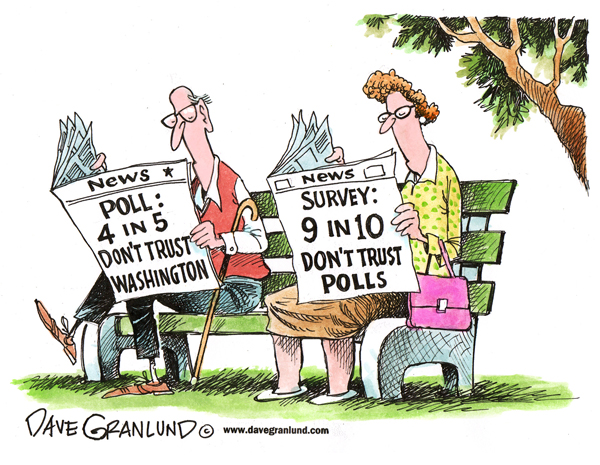 by Kerby Anderson
by Kerby Anderson
Every four years there is usually a debate about the accuracy of the polls. So here is my quadrennial commentary on polling. First, let’s look at their statistical accuracy. A typical three-day poll of 1000 people if proportioned among the 3000 counties can accurately represent American adults 19 out of 20 times within three percentage points.
The real question about the polls isn’t whether they are statistically accurate but whether they are polling the right people and whether the people being polled are giving honest answers. We should assume that reputable polling firms do conduct polls that accurately mirror race, sex, age, geography, and educational makeup.
What is more difficult to determine is whether they have polled the right people. Are they polling likely voters or all Americans in general? Four years ago, just over half (57.5%) of all American adults voted. A poll that can closely predict the electoral outcome needs to be taken of likely voters.
Another question is whether people being polled are giving honest answers. Pollsters have found that when asked certain questions about issues or candidates, they may give the answer they think the pollster wants. Experts refer to this as a “social desirability bias.” In the past, many of the state marriage protection amendments passed with a higher percentage than what was predicted in the polls.
There is also what is known as the “Bradley effect.” Los Angeles Mayor Tom Bradley was an African-American who lost in 1982 despite being ahead in the polls. Some voters told pollsters they were undecided or going to vote for Bradley because they didn’t want to say they weren’t voting for the black candidate. This year, voters might feel they should say they will vote for Hillary Clinton as the first woman president or may feel it is unpopular to say they are voting for Donald Trump.
All of this to say that polls can be statistically accurate if they poll the right people and get honest answers. Sometimes that’s not the case.
 Listen Online
Listen Online Watch Online
Watch Online Find a Station in Your Area
Find a Station in Your Area










 Listen Now
Listen Now Watch Online
Watch Online
